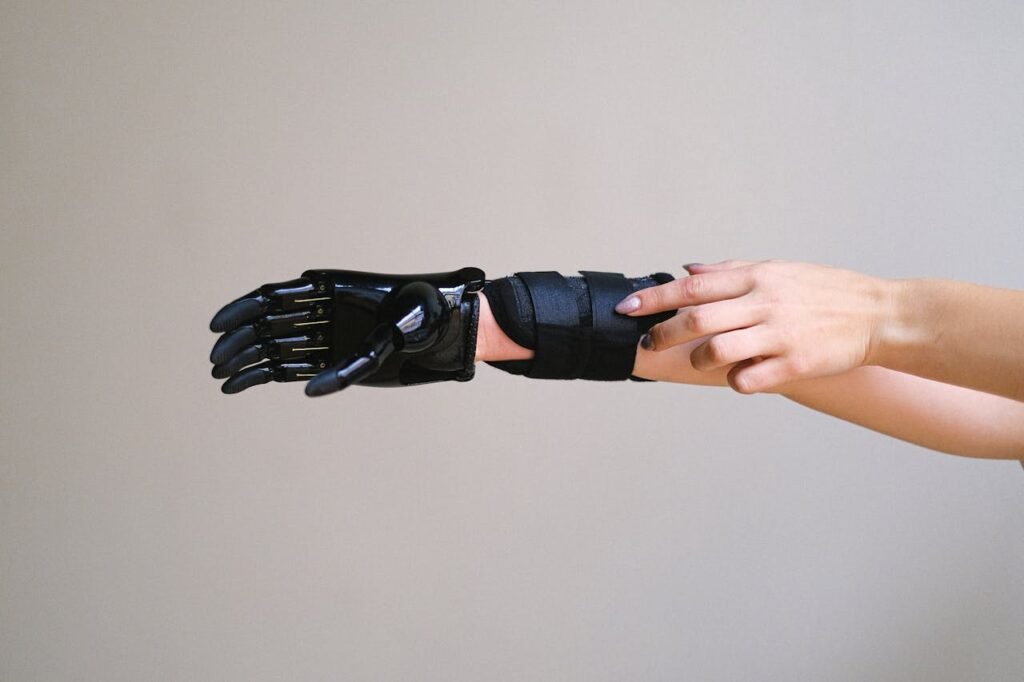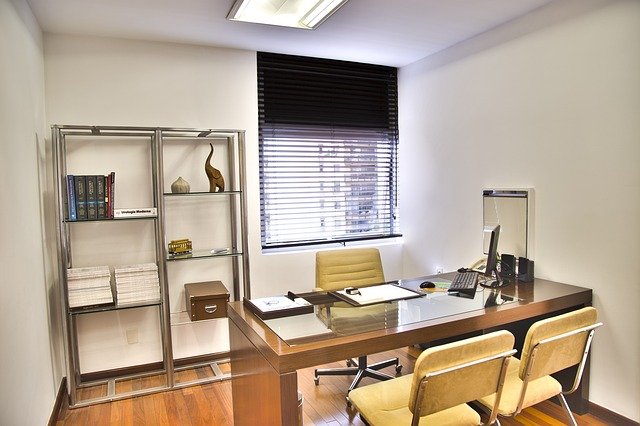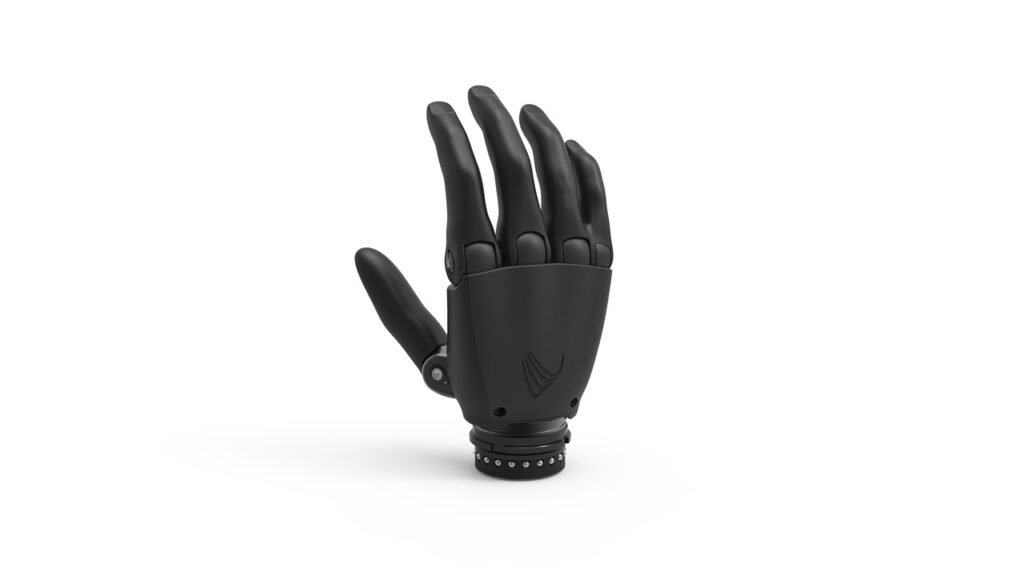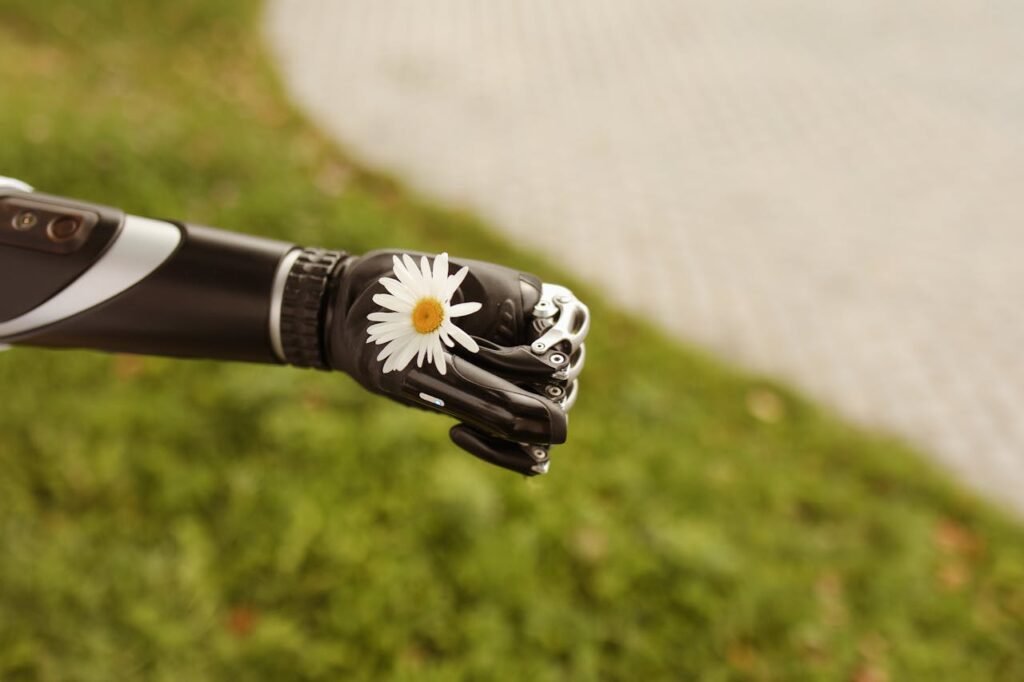When someone needs a prosthetic hand or limb, the first thought is often about cost. Families worry if they can afford it, and many assume that advanced devices are out of reach. But what many people do not know is that state governments across India have schemes and benefits that can reduce these costs.
These programs are designed to help people with disabilities live more independent lives. From subsidies to free distribution camps, every state has its own way of supporting those in need. Knowing about these benefits can save families lakhs of rupees and make world-class prosthetics much more accessible.
In this article, we will explore how different states in India support prosthetic users. We will explain the benefits you should check, how to apply, and what to expect from the process. By the end, you will see that getting a prosthetic is not only about finding the right device—it is also about knowing the support that is already waiting for you.
Central Government Schemes
Why Central Schemes Matter

Before looking at state-level benefits, it is important to understand what the central government already offers. Many of these programs are available across India and provide a foundation of support that states can add to.
For prosthetic users, the most important initiative is through the Ministry of Social Justice and Empowerment. This ministry supports persons with disabilities in many ways, including the cost of assistive devices.
The ADIP Scheme
The Assistance to Disabled Persons for Purchase and Fitting of Aids and Appliances (ADIP) Scheme is one of the best-known programs. Under this, eligible people with disabilities can get prosthetics, wheelchairs, hearing aids, and other devices either free or at a subsidized cost.
The support depends on income. Those with very low income often get devices for free, while others may get large subsidies that cut the price sharply. Camps are also organized in many districts to distribute devices directly to people who need them.
District Disability Rehabilitation Centres
Another central initiative is the setting up of District Disability Rehabilitation Centres (DDRCs). These centers are spread across India and help people with evaluation, fitting, and access to benefits. Many DDRCs conduct free trials, fittings, and awareness camps for prosthetic users.
Knowing the location of your nearest DDRC can make the process smoother, especially when applying for state-level help.
Maharashtra
A State With Active Programs
Maharashtra is one of the states where prosthetic support is well developed. With large cities like Mumbai and Pune, the state runs several programs through its Social Justice Department.
The state often collaborates with NGOs and hospitals to organize camps where prosthetic devices are given free of cost to eligible users. These camps are usually advertised through local newspapers and government websites.
Financial Support Options
For low-income families, the state government offers direct subsidies on assistive devices, including prosthetic limbs. Beneficiaries need to show income certificates and disability certificates to qualify.
Maharashtra also makes use of central schemes like ADIP, but adds its own contribution to increase the level of support. This makes prosthetics more affordable even in expensive cities like Mumbai.
How to Apply
Applications are usually routed through local government offices or directly during special distribution camps. Documents like Aadhaar, disability certificate, and income proof are required. Some families also get guidance from local NGOs that partner with the state.
The key advantage in Maharashtra is accessibility—because of frequent camps, many users do not have to travel far to benefit.
Delhi
The Capital’s Advantage

Being the capital city, Delhi benefits from both central schemes and state-level programs. With several top hospitals and rehabilitation centers located here, residents often have better access to prosthetics than in smaller states.
The Department of Social Welfare in Delhi runs targeted schemes to support people with disabilities, including subsidies for prosthetic devices. NGOs in Delhi also play a strong role in distributing devices at reduced costs.
Disability Pension and Subsidy Support
In Delhi, people with disabilities can apply for a disability pension, which provides monthly financial assistance. While not directly tied to prosthetics, this pension can be used to cover ongoing costs of care, including repairs and fittings.
In addition, state-level programs sometimes provide one-time support for buying or fitting prosthetics. This support is usually announced through official notifications or during specific health campaigns.
Application Process
The application process in Delhi is usually managed online through the state’s e-district portal. Applicants need to upload documents like disability certificates, residence proof, and income details.
Because Delhi has strong digital infrastructure, the process is smoother compared to many other states. However, families must still follow up to ensure that their requests move forward.
Karnataka
A State Focused on Rehabilitation
Karnataka has made steady progress in supporting people with disabilities. The state works closely with rehabilitation centers in Bengaluru and Mysuru, ensuring that prosthetic care is not limited only to large hospitals.
The Department for Empowerment of Differently Abled and Senior Citizens runs multiple schemes to make assistive devices affordable. Prosthetics are one of the key areas covered.
Subsidies and Free Camps
Through tie-ups with NGOs and central schemes like ADIP, Karnataka organizes free camps where prosthetic limbs and hands are distributed. These camps are often announced in local news and coordinated by district-level officers.
For those not able to attend camps, the state also provides subsidies on a case-to-case basis. Applications can be made through local government offices with proper documentation.
Special Role of Bengaluru
Bengaluru, being a hub of healthcare startups and advanced rehab facilities, plays a central role in prosthetic support. Patients here often benefit from collaborations between the state, NGOs, and private innovation-driven clinics.
This means that people in Karnataka not only get cost benefits but also access to modern training and aftercare systems that make using prosthetics easier.
Tamil Nadu
A Strong Medical Tradition
Tamil Nadu is known for its medical infrastructure. From Chennai to Coimbatore, the state has hospitals and rehabilitation centers that attract patients from across South India. This extends to prosthetic care as well.
The state government has long focused on welfare for people with disabilities. Prosthetics are often included in large-scale health programs run by the Social Welfare Department.
Government-Funded Prosthetics
In Tamil Nadu, government hospitals frequently provide prosthetics at no or very low cost for eligible patients. The state organizes distribution drives, especially in rural areas, to make sure access is not limited to big cities.
Many families benefit from these drives, which combine central support under the ADIP scheme with state funds to reduce costs further.
NGO Partnerships
Tamil Nadu has a strong culture of NGOs working alongside the government. Several NGOs in Chennai and other cities actively support prosthetic users by sponsoring fittings, training, and review visits.
For patients, this means they often get a wider range of support—financial help from the government, and personalized care from non-profits.
West Bengal
Expanding Support in the East

West Bengal is steadily expanding its programs for people with disabilities. While awareness is still growing, the state has made progress through its Social Welfare Department and partnerships with organizations like ALIMCO, which supplies prosthetic devices under the ADIP scheme.
Kolkata, being the main metro, serves as the central hub for prosthetic care. District-level efforts are now increasing as well, making access easier for rural populations.
State Schemes and Subsidies
The state provides disability pensions and subsidies for assistive devices, including prosthetics. Families with low income can apply through district offices to access financial support for buying or fitting devices.
Periodic camps are also held across districts, where prosthetic devices are distributed either free of cost or with significant subsidies.
The Role of NGOs in West Bengal
Local NGOs play a very important role in bridging gaps. Many families in rural areas are not fully aware of government schemes. NGOs often step in to spread awareness, assist with applications, and even sponsor travel to district centers for fittings.
This mix of government and NGO support is making prosthetics more accessible in the state, though awareness remains a challenge that needs continued effort.
Uttar Pradesh
A Large Population With Growing Needs
Uttar Pradesh is India’s most populous state, and naturally, it has one of the highest numbers of people living with disabilities. With such a large need, the state government has worked to expand access to prosthetics and assistive devices.
Through the Department of Empowerment of Persons with Disabilities, Uttar Pradesh organizes frequent distribution camps. These camps are usually run in partnership with central agencies like ALIMCO, which is headquartered in Kanpur.
Free Prosthetic Camps
One of the biggest advantages in Uttar Pradesh is the sheer number of free prosthetic camps. Because of the central government’s presence in Kanpur, the state has easier access to prosthetic supply chains.
Patients with valid disability certificates often get prosthetics free of cost during these camps. For families with low income, this removes a huge financial burden.
Challenges in Rural Areas
Despite these advantages, rural areas sometimes face challenges. Travel distance and lack of awareness keep many from applying. That is why NGOs and social workers play a critical role in helping families complete applications and attend camps.
Rajasthan
Focus on Accessibility
Rajasthan is known for its wide rural population and difficult terrain. To address this, the state government has been proactive in ensuring that prosthetic devices reach even remote districts.
The Social Justice and Empowerment Department runs welfare schemes for people with disabilities, which cover prosthetics along with other aids.
State-Sponsored Camps
Like Uttar Pradesh, Rajasthan makes strong use of distribution camps. These camps are held in partnership with central schemes, and thousands of prosthetic limbs have been distributed across the state in recent years.
One unique feature is that many camps in Rajasthan are organized by local communities and NGOs in partnership with the state, ensuring better outreach in desert and rural regions.
Support Beyond Devices
Rajasthan also supports people with disabilities through education and job-related benefits. This means that a prosthetic user is not only given a device but is also encouraged to return to school or work with added state-level help.
Kerala
A Healthcare-Focused State
Kerala is often praised for its strong public healthcare system, and prosthetic care is no exception. The state invests in medical infrastructure and ensures that assistive devices are available even in government hospitals.
The Social Justice Department of Kerala runs disability welfare programs that include financial support for prosthetic fittings.
Subsidies and Insurance Tie-Ups
Kerala makes use of both subsidies and health insurance tie-ups to reduce prosthetic costs. Many families here benefit from state-sponsored health schemes that cover part of the cost of devices.
This approach is slightly different from other states, as Kerala tries to integrate prosthetic care into the larger healthcare system rather than handling it as a standalone program.
Rehabilitation and Community Care
Kerala is also known for its strong rehabilitation networks. Prosthetic users often receive not just the device but also physiotherapy, emotional support, and community-based rehabilitation. This makes adaptation easier and smoother.
How Families Can Apply for Benefits
Step One: Get a Disability Certificate

The first step to access any benefit is to have a valid disability certificate. This is issued by authorized government hospitals and proves the type and level of disability. Without this, most schemes cannot be accessed.
Families should visit their nearest district hospital or disability certification center to complete this process.
Step Two: Gather Income Proof
Since many schemes are income-based, income certificates are also required. These can be obtained from local revenue offices. Families must ensure the certificate is up to date to avoid rejection during the application.
Step Three: Approach Local Government Offices
Every state has a district-level office handling welfare for people with disabilities. Families should submit applications here along with necessary documents—Aadhaar, disability certificate, income proof, and residence proof.
In some states like Delhi, this process is also available online through official portals, which makes it faster and easier.
Step Four: Stay Updated on Camps
Distribution camps are one of the easiest ways to get prosthetics at low or no cost. These camps are often announced in local newspapers, radio channels, and on government websites. Families should stay alert for these announcements and register early.
Step Five: Partner With NGOs
NGOs often simplify the process by helping with paperwork, awareness, and even travel to camps. Families should not hesitate to reach out to local NGOs working in the disability sector, as they can speed up access to benefits.
Real Stories That Show the Impact
A Student in Uttar Pradesh
A college student from Kanpur lost his hand in an accident and thought he would never be able to write again. Through a free prosthetic camp organized under the ADIP scheme, he received a prosthetic hand at no cost. With regular training, he regained his writing ability and continued his studies. His family, who worried about money, now tell others how government benefits can change lives.
A Farmer in Rajasthan
In rural Rajasthan, a farmer lost his leg due to illness. His family could not afford a prosthetic on their own. At a distribution camp supported by the state and NGOs, he was fitted with a prosthetic leg. Today, he works in his fields again and supports his family. For him, the device meant more than mobility—it meant dignity and independence.
A Homemaker in Kerala
A homemaker in Kerala faced daily struggles after losing part of her arm. Through a state health scheme, she received a subsidized bionic prosthetic. What made her journey easier was the community rehabilitation program, which guided her through training at home. Now she can cook, manage household tasks, and live with confidence again.
A Worker in Tamil Nadu
A worker in Chennai received his prosthetic through a government hospital with NGO support. The combination of state funding and NGO follow-up care meant he not only got his device but also training to adapt quickly. He is now back at work and says his prosthetic is his “key to normal life.”
Why These Benefits Matter
Beyond the Device
Each of these stories shows something important—prosthetics are not just devices. They are life-changing tools that restore independence, confidence, and dignity. But for many families, the cost feels like a wall they cannot cross.
That is why state and central benefits matter so deeply. They bring the wall down, making advanced prosthetics accessible to people who would otherwise be left behind.
Support for Every Family
It does not matter whether you live in a big city or a small village. Every state in India has some program or partnership to reduce prosthetic costs. The key is knowing what to check, where to apply, and how to claim these benefits.
Once you do, you may find that the prosthetic you thought was unaffordable is actually within reach.
How Robobionics Helps Families
Guidance Through the Process

At Robobionics, we believe innovation must go hand in hand with accessibility. That is why we not only design affordable prosthetics like the Grippy Bionic Hand but also guide families on how to apply for government schemes.
Many of our users have received partial or full support through ADIP, state subsidies, or NGO partnerships. We see it as part of our mission to make sure cost never stands in the way of independence.
Affordable, Transparent Pricing
Our devices are priced fairly—between ₹2.15–3 lakh for advanced bionic hands—making them accessible compared to imported options that cost over ₹10 lakh. And when combined with state benefits, the price comes down even further.
Families are often surprised at how affordable advanced technology becomes once these subsidies are factored in.
A Partner in Your Journey
We do not stop at fitting the device. We provide trials, fittings, review visits, and emotional support as part of the journey. And because costs of these visits are included in your quote, you know exactly what to expect.
With Robobionics, you are never walking alone.
Your Next Step
Check the Benefits Available to You
Every family should check what central and state schemes they are eligible for. A disability certificate, income proof, and awareness of upcoming camps can unlock major financial support. The sooner you apply, the sooner you can benefit.
Book a Demo With Us
If you are considering a prosthetic, the best way to begin is with a demo. During this session, you will try the device, ask questions, and understand how government support can make it affordable for you.
You do not have to figure it all out alone—we will guide you step by step.
A Journey of Hope
Prosthetics are not just about replacing what was lost. They are about restoring what makes life full—confidence, freedom, and independence. With the right support, both from your state and from Robobionics, this journey is within your reach.
Take the first step today. Book your demo here: https://www.robobionics.in/bookdemo/
Your story of strength and independence is waiting to be written. And we will be there with you, every step of the way.



